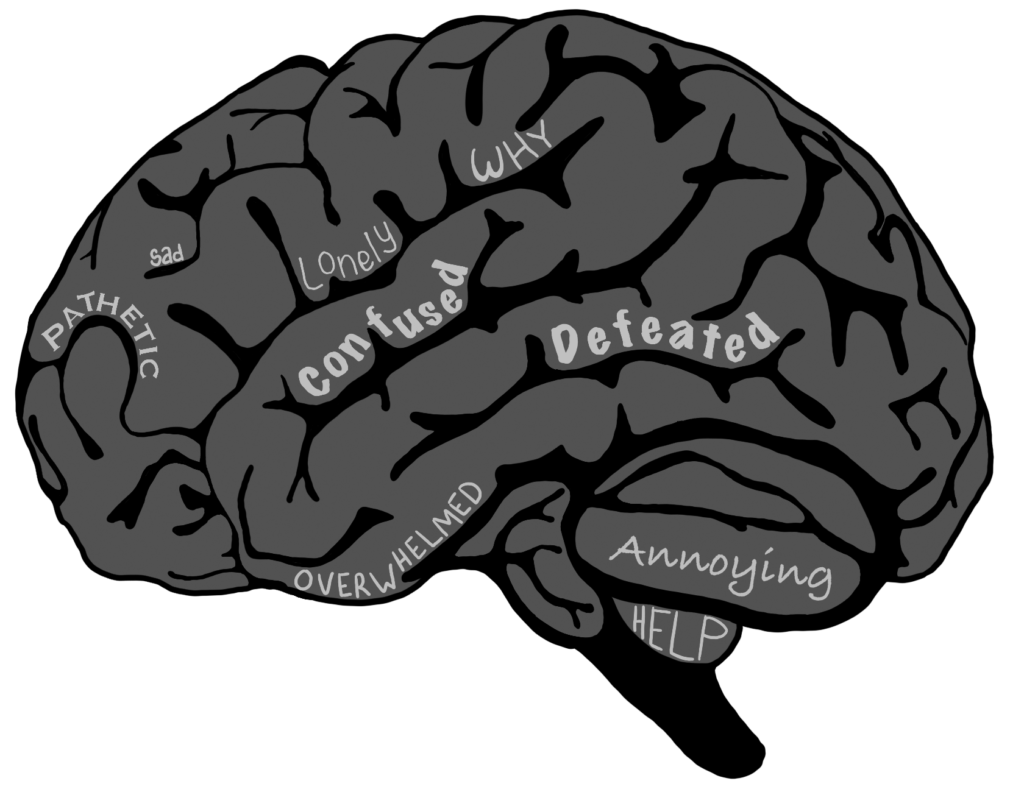Mason allocates resources to tackle mental health issues
Alisha Soni | Staff Writer

Through increased awareness surrounding mental health, Mason administrators are aiming to break down the negative stigma once associated with it.
During a time when students are faced with everyday environmental issues– social, economic, academic, and health, among others– Mason administrators have allocated more resources towards mental health and wellness.
After a series of tragic suicides in the district, Mason City Schools (MCS) Superintendent Jonathan Cooper and other MCS administrators met with students to discuss how to better support individuals struggling with mental health. Cooper realized that in addition to the assistance the district had already offered, more needed to be done. As a first step, Mason “invested resources, money, and time into implementing the Hope Squad, [the] peer-to-peer suicide prevention program.”
“We have a comprehensive program to support students, staff, and families; it was more of a proactive approach,” Cooper said. “We went from having very little in place over the last three years to ramping that program up.”
In addition to establishing the Hope Squad, Mason “hired a mental wellness coordinator for every building” and “built relationships with Cincinnati Children’s Hospital and the Lindner Center of HOPE” through mental health organizations such as MindPeace and 1N5. Coupled with these resources, the administration has allowed Mason staff the opportunity to undergo mental-health training.
Cooper was able to lead the mental-health training program, Start the Conversation, with help from the Lindner Center of HOPE. The optional training is aimed to remove any communication barriers that may occur with mental health conversations between students and teachers.
“In the last couple of years we’ve dedicated our full staff training to anti-bias and anti-racist work, but we want to make sure our whole staff is trauma-informed,” Cooper said. “We want our staff to learn how to support students and colleagues going through different things. It could be mental illness but can also just be mental wellness and proactivity. Our goal is to reach all staff in hopes for continued growth in our culture.”
Therapy dogs are another support provided at the district. Students are welcome to access the therapy dog, Hibbs, who is typically located in the guidance department. With the impact the therapy animals hold on students and staff, Cooper said he can see the schools acquiring other dogs in the future.
“Animals are very comforting to our kids. We have wonderful therapy dogs, especially Hibbs; he wears a bow tie,” Cooper said. “I mean that’s a pretty impressive dog right there. When kids are having a hard time processing, they’re hurt. Oftentimes, it doesn’t come through words; especially in younger grade levels, it comes through comfort. And that right there is worth every investment.”
Serving as another stress-easing resource, MCS Mental Wellness Coordinator Molly Schmidt describes the relaxation rooms MHS created for students’ use. The rooms, located in the guidance hallway, are designed to provide a calming state for students to decompress in.
“We have a big relaxation room,” Schmidt said. “It has couches, it has low lighting, it’s quiet, there are coloring pages and things that might help [students] relax during the school day if they’re having a particularly hard time. A lot of our guidance counselors will talk to students about using that space just to take a five to fifteen-minute mental break where they can go in there, listen to music, relax, and sometimes be with our therapy dog Hibbs.”
With all of the additional stressors students may face due to the pandemic such as isolation, financial and health-related stress, “it’s important to not feel like you’re going through this alone,” Schmidt said. She acknowledges that it is more critical than ever that students reach out when they need help.
“High school is stressful to begin with,” Schmidt said. “This year has been different than every other year, and there are so many additional stresses. There’s a lot of people going through these experiences and feeling overwhelmed, stressed, and maybe dealing with depression or isolation anxiety. It’s so important to not feel like you’re going through this alone, especially as a student it might feel that way sometimes.”
Cooper views the future with chances of “expanding the mental wellness programming” with hopes of reaching all classrooms and becoming accessible to all students. Another priority lies in becoming “more comprehensive with the partnership.”
“I think awareness is an ongoing effort that we need to make so everyone knows what’s available and how to access it,” Cooper said. “One thing in Mason that we’re trying to always do, I call it Mason momentum, is to move forward in what we’re doing, especially if we know it’s good for our community.”
According to Schmidt, students tend to bottle up their issues while stress builds up into something overwhelming. Schmidt’s role is to help as she connects families and students to therapy or other mental health services. No matter the situation, she urges students to talk to someone they trust and get connected with services if they are feeling stressed.
“Everyone’s story is different, and part of our amazing culture is that your story matters and everyone feels valued. I think all of those things are important– to keep in mind that everyone’s mental illness matters. And so, if they feel like they’re struggling in any way, even if they just need to talk, we want them to reach out.”
Graphic by Lexi Brown
